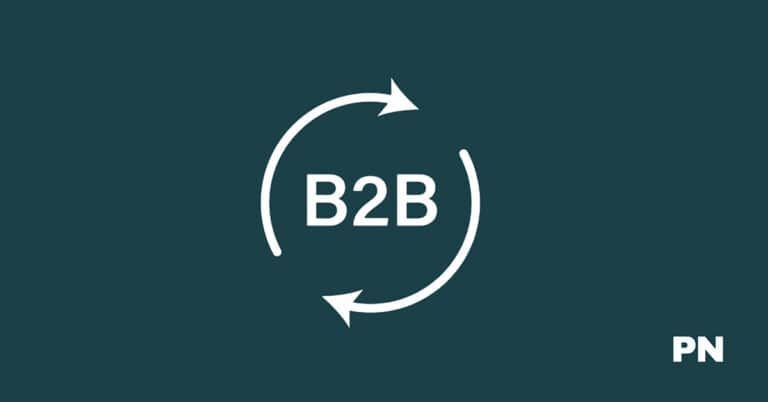50+ Amazing Event Marketing Statistics You Never Knew

Event marketing has become an integral part of modern-day marketing strategies. It involves promoting a brand, product, or service through events, such as trade shows, conferences, and webinars.
One of the biggest challenges event marketers face is reaching new attendees, as reported by 40% of event planners.
However, almost three-quarters of event marketers reported budget increases for 2023, indicating the industry’s growing importance.
Event budgeting has become more complex with the rise of virtual and hybrid events. Nevertheless, the event marketing industry will grow in the coming years.
1. The event marketing industry is projected to reach $36.31 billion by 2026.
(Source: Daedal Research)
B2B event marketing has the largest industry share, with 40%, while B2C and mixed segments comprise the rest of the market.
Interestingly, 73% of event marketers reported budget increases for 2023, indicating that businesses are recognizing the value of events as a marketing tool.
To keep up with the changing landscape of the event marketing industry, event marketers are increasingly turning to technology.
According to 86% of event marketing professionals, technology has a high positive impact on events. This has led to the rise of event management software, which can help automate many of the tasks involved in organizing an event.
As the event marketing industry grows, businesses must stay up-to-date with the latest trends and technologies.
By investing in events and leveraging technology, businesses can create memorable customer experiences and drive long-term growth.
2. 90% of event organizers believe that all large-scale events will be remote or hybrid in the next two years.
(Source: Kaltura)
In recent years, remote and hybrid events have become increasingly popular, and this trend is expected to continue in the next two years.
The COVID-19 pandemic has accelerated the shift towards remote and hybrid events, as businesses and organizations have had to adapt to social distancing measures and travel restrictions.
Remote and hybrid events have proven effective alternatives to traditional in-person events. They allow organizers to reach a wider audience and reduce costs.
One benefit of remote and hybrid events is the ability to collect data and insights about attendees.
By leveraging technology, organizers can track attendee engagement, measure ROI, and analyze event performance.
This data can be used to improve future events, tailor marketing strategies, and enhance the overall attendee experience.
In addition, remote and hybrid events offer greater flexibility and convenience for attendees.
They can participate from anywhere in the world and choose to attend live sessions or access on-demand content at their own pace.
This makes it easier for attendees to fit events into their busy schedules and can lead to higher attendance rates.
3. The global event management software market was predicted to reach USD 6.97 billion in 2022, with a compound annual growth rate (CAGR) of 12.5% between 2023 and 2030.
(Source: Grand View Research )
If you are looking to organize an event, you might want to consider using event management software.
With the proliferation of technology, event management software has solid data-handling attributes. It enables event managers to gather and evaluate data on attendees, sponsors, and other stakeholders.
The significant increase in sports, gaming, and entertainment events over the past decade is the major factor influencing the market’s growth.
The market is projected to reach USD 16.11 billion by 2026 and expand to USD 28.13 billion by 2031.
It is anticipated to flourish over the forecast period, mainly owing to the rising demand for automation of event management processes.
The accelerated adoption of virtual events due to COVID-19 has also significantly fueled the growth of the event management software market.
The rise in demand to manage large volumes of data and automate event management processes has further fueled the market’s growth.
4. Lack of human resources is the top challenge for event marketers.
(Source: Splash)
This is a common issue that many event marketers face, and it can be difficult to overcome.
To overcome this challenge, it’s important to understand your team’s strengths and weaknesses. This will help you identify areas needing additional support and resources.
You may also consider outsourcing specific tasks or hiring additional staff to help with event planning and execution.
Another way to address this challenge is to invest in training and development for your existing team. This can help them build new skills and improve performance, leading to better event outcomes.
5. However, 40% of event planners say the biggest challenge in event marketing is reaching new attendees.
While in-person events may be the most impactful marketing channel, reaching new attendees can be a significant challenge for event planners.
This statistic highlights the need for event marketers to develop innovative strategies to attract new attendees and keep them engaged.
One strategy that event planners can use to reach new attendees is to leverage social media.
Social media platforms such as Facebook, Twitter, and LinkedIn can effectively promote events and attract new attendees.
Event planners can reach a wider audience and increase event attendance by creating engaging content and utilizing targeted advertising.
Another strategy that event planners can use to attract new attendees is to offer unique experiences.
Attendees are more likely to attend events that offer something different and exciting.
Event planners can attract new attendees by providing unique experiences such as interactive exhibits, live performances, or networking opportunities.
Moreover, event planners can leverage data analytics to better understand their audience and tailor their marketing efforts accordingly.
By analyzing attendee data such as demographics, interests, and behavior, event planners can create targeted marketing campaigns that resonate with their audience and increase attendance.
6. Almost 3 in 4 event marketers reported budget increases for 2023.
(Source: Splash)
With a larger budget, you can plan bigger and better events to help you achieve your marketing goals.
You can also invest in better technology, hire more staff, and create engaging experiences for your attendees.
But with more budget comes more responsibility. You must ensure you spend your budget wisely and get the best return on investment.
This means tracking your expenses, measuring your results, and constantly optimizing your events to ensure they meet your goals.
7. 32% of marketers said attracting the right attendees is important.
(Source: Splash)
To attract the right attendees, you need to clearly understand your target audience. This means identifying their needs, interests, and preferences.
You can use this information to create an event tailored to their needs and interests.
In addition to targeting the right audience, creating compelling event content is important. This can include keynote speakers, interactive workshops, and networking opportunities.
You can attract attendees and keep them engaged throughout the event by providing valuable content.
Finally, accurately measuring ROI is also important for event marketing success. This allows you to determine the effectiveness of your event and make improvements for future events.
You can gain valuable insights into its success by tracking attendance, engagement, and conversions.
8. Nearly two-thirds of Gen Zs are open to business events.
(Source: Convene Digital)
It is important to note that Gen Z event attendees prioritize career and networking opportunities.
Therefore, if you are planning an event that targets Gen Zs, you should focus on providing opportunities for attendees to connect with industry professionals and peers.
This could be achieved through networking sessions, career fairs, or panel discussions featuring successful industry professionals.
You should also ensure your event is effectively marketed to attract Gen Z attendees. This includes using social media platforms such as Instagram and TikTok, which are popular among Gen Zs.
Additionally, you should provide clear information about the event, including the subject matter, location, and speakers.
9. 69% of Gen Z event attendees say they wish events were more engaging.
(Source: Convene Digital)
Engaging events are crucial to attracting Gen Z attendees. This means that event organizers need to step up their game and find ways to make events more interactive and immersive.
Organizations can incorporate activities encouraging attendees to participate and making events more engaging.
Interactive booths, games, and workshops can help attendees feel more involved.
Gen Z attendees want more engaging and inclusive events.
According to the same statistics, 39% of Gen Z event attendees wish events were more inclusive. This means that event organizers must be mindful of creating events that welcome attendees of all backgrounds and abilities.
To make events more inclusive, organizers can provide accommodations for attendees with disabilities, offer gender-neutral restrooms, and ensure that event spaces are accessible.
Additionally, organizers can offer diverse speakers and performers to ensure attendees feel represented and included.
Finally, Gen Z attendees also want more communication between organizers and attendees.
According to statistics, 32% of Gen Z event attendees want more communication between organizers and attendees.
This means that event organizers must be more transparent and responsive to attendee feedback.
To improve communication, organizers can create surveys to gather feedback from attendees and use that feedback to improve future events.
Additionally, organizers can use social media to inform attendees about event updates and changes.
10. 80% of marketers believe live events are critical to their company’s success.
Live events have become a crucial component of marketing strategies for most organizations.
Organizations across various industries, including accounting firms, tech companies, nonprofits, and publishers, are now producing events.
This indicates that live events are no longer a “nice to have” but an essential marketing tactic for outpacing and outlasting competitors.
Most marketers recognize the importance of live events, and this marketing channel clearly provides a unique opportunity to engage with potential customers.
Live events offer a chance to create meaningful connections, build relationships, and generate leads.
11. Event sponsorship drives brand engagement with 98% of consumers.
(Source: Profile Tree)
Event sponsorship is one of the most powerful ways to drive brand engagement.
By sponsoring an event, you showcase your brand to a large audience and associate your brand with the positive feelings and experiences that attendees have during the event.
This can increase brand loyalty and strengthen the emotional connection between your brand and customers.
Event sponsorship can also help you reach new audiences and expand your customer base.
By sponsoring events that attract your target demographic, you can increase your brand’s visibility and introduce your products or services to potential new customers.
To maximize event sponsorship, it’s important to choose events that align with your brand’s values and messaging.
This will help ensure that your sponsorship is seen as authentic and genuine rather than a simple attempt to capitalize on a popular event.
12. U.S. Companies Spend an Estimated $122 Billion on Event Marketing Annually.
(Source: StageEdge)
The report also reveals that 79% of U.S. marketers use event marketing to generate sales leads. This is not surprising, given that events provide a unique opportunity to engage with potential customers face-to-face.
By creating a memorable experience, companies can build brand awareness and establish a personal connection with their target audience.
It’s worth noting that event marketing is not just for large companies. Small and medium-sized businesses can also benefit from events.
28% of businesses use event marketing to directly support sales. This means that events are a branding exercise and a powerful tool for driving revenue.
Planning carefully and measuring your ROI is essential to maximize your event marketing budget.
Setting clear objectives and tracking your results ensures that your events deliver the desired outcomes.
You can also use technology to streamline your event planning and execution, such as event management software, valued at USD 3.6 billion in 2018.
13. 9 of 10 B2B marketers believe buyers suffer from “event fatigue.”
(Source: Marketing Charts)
With the rise of virtual events, “event fatigue” has become a significant concern for B2B marketers.
This means buyers are becoming overwhelmed by the number of events they attend, causing them to lose interest and engagement.
Hence, B2B marketers must find new and innovative ways to make their events stand out and attract their target audience.
To combat event fatigue, B2B marketers must create engaging and interactive events that offer real value to attendees.
This can be achieved through a variety of tactics, such as:
- Offering personalized content and experiences tailored to the needs of each attendee
- Incorporating interactive elements such as polls, quizzes, and games to keep attendees engaged
- Providing networking opportunities to help attendees connect and build relationships
- Using social media and other digital channels to promote the event and generate buzz
By taking these steps, B2B marketers can create engaging, memorable events that provide real value to attendees.
This will help them stand out in a crowded marketplace and ensure their events are well-attended and successful.
14. The global event management services market was estimated at USD 555 billion in 2022 and is expected to reach USD 1073.01 billion by 2031, growing at a 7.6% CAGR from 2023 to 2031.
(Source: Growth Market Reports)
The event management services market is worth considering if you want a lucrative and growing industry to invest your time and resources in.
This growth is attributed to the increasing demand for professional event planners who can provide cost-effective solutions for decorations, catering, and other event-related services.
With the proliferation of technology, event management software has also become an integral part of the industry.
It enables event managers to gather and evaluate data on attendee behavior, preferences, and feedback.
The increasing applications of digital platforms drive the market’s growth, as does the growing demand for actionable insights and the need for better event planning and execution.
As businesses and organizations continue to recognize the importance of events, the demand for event management services is expected to rise.
15. 61% of marketers use events as their most important marketing tool.
Events are more popular than other marketing channels like email, social media, and content marketing.
Why are events so popular among marketers? One reason is that events allow you to connect with your target audience more personally and engagingly.
People attending your event can interact with your brand, learn more about your products or services, and engage with your team members.
This can help build trust and loyalty, increasing sales and customer satisfaction.
Another reason why events are so effective is that they allow you to collect valuable data about your target audience.
By tracking attendance, engagement, and other metrics, you can gain insights into your audience’s preferences. This can help you refine your marketing strategy and improve your products or services.
16. Events are ranked second on the list of the most effective content marketing tactics for B2B marketers, with 67% rating them as effective.
Events can take many forms, from webinars and conferences to trade shows and product launches.
They offer a unique opportunity to connect with your target audience more personally and engagingly.
By attending an event, your audience can interact with your brand, learn about your products and services, and network with other professionals in their industry.
Another benefit of events is that they provide a platform for thought leadership and industry expertise.
You can position your brand as a leader in your industry and showcase your knowledge and expertise by hosting a panel discussion or keynote speech.
This can help build trust and credibility with your audience, which is invaluable in today’s competitive marketplace.
17. 77.7% of attendees agree that in-person conferences offer an optimal networking atmosphere.
(Source: Bizzabo)
One reason in-person conferences offer such a great networking atmosphere is that they allow attendees to have face-to-face conversations. This allows for more meaningful interactions and the opportunity to build stronger relationships.
Additionally, in-person conferences often have dedicated networking sessions or events, which can further facilitate connections between attendees.
Another benefit of in-person conferences is that they allow attendees to meet people from different parts of the country or world.
This can be particularly valuable for those working in a niche industry or looking to expand their professional network.
Meeting people from different regions allows attendees to gain new perspectives and insights they may not have otherwise been exposed to.
Overall, the high percentage of attendees who value the networking atmosphere at in-person conferences highlights the importance of face-to-face interactions in the professional world.
Whether you want to build new relationships, expand your knowledge, or connect with others in your field, attending an in-person conference can be a valuable investment in your career.
18. 79% of U.S. marketers use event marketing to generate sales leads.
Event marketing is a powerful tool to help businesses generate sales leads and build stronger customer relationships.
If you want to boost your ROI and grow your business, consider incorporating event marketing into your marketing strategy.
19. 55% of event professionals plan to hold most of their events in person.
While virtual events have advantages, such as increased accessibility and reduced costs, there is no substitute for the energy and excitement of an in-person event.
In-person events allow attendees to network, build relationships, and experience the products and services showcased in a way that virtual events simply cannot match.
Of course, the decision to hold an in-person event should not be taken lightly.
Event professionals must consider various factors, such as venue availability, travel restrictions, and attendee safety.
However, the rewards can be significant for those navigating these challenges.
20. The typical in-person event costs 47.8% more than the average virtual one.
While 80% of virtual events are free, the average paid virtual event costs $443. On the other hand, the average in-person event costs roughly $655 to attend.
This cost difference can be attributed to several factors. For one, in-person events require more logistical planning and resources.
Venues, catering, transportation, and other expenses can add up quickly.
Additionally, attendees of in-person events often expect a higher production value and entertainment than they would from a virtual event.
However, it’s important to note that in-person events still have advantages. They offer attendees a unique opportunity to connect and build relationships in a way that virtual events simply can’t match.
In-person events also provide a more immersive experience, allowing attendees to engage with the content and environment fully.
21. 71% of event decision-makers think it’s tough to make virtual events exactly mirror the IRL experience, with two-thirds (67%) saying it’s challenging to express a brand narrative through virtual events.
(Source: Blue Jeans and Forrester)
The inability to capture the relative magic of in-person relationship-building is the primary reason business travel is returning.
Virtual events lack the physical experience of in-person events, making it challenging to create a brand narrative that resonates with attendees.
To overcome these challenges, event planners must leverage technology to create immersive experiences that replicate the in-person experience as closely as possible.
Virtual and augmented reality can create interactive experiences that engage attendees and make them feel physically present at the event.
22. 28% of businesses use event marketing to support sales directly.
Event marketing is so effective at driving sales because it allows businesses to connect with their target audience more personally.
By hosting an event, businesses can create a memorable experience for their attendees, which can help build brand loyalty and increase the likelihood of a sale.
23. 80.4% of organizers identify in-person events as their organization’s most impactful marketing channel.
(Source: Bizzabo)
In-person events offer unique opportunities for engagement and connection that simply can’t be replicated through digital channels.
Attendees have the chance to network with peers, interact with products and services in a hands-on way, and learn from experts in their field.
These experiences can leave a lasting impression on attendees and help build brand loyalty over time.
But it’s not just about the attendees’ experience. In-person events also offer valuable opportunities for organizers to collect data and insights about their audience.
From registration information to post-event surveys, organizers can gather valuable information about attendee preferences, pain points, and interests.
This data can inform future marketing efforts and help organizers create more impactful events.
24. By 2025, the worldwide event management platform market will be worth $7.4 billion.
Event management platforms are becoming increasingly popular among event planners and organizers. These platforms offer a range of tools and features that make planning, organizing, and managing events of all sizes easier.
The Asia-Pacific region is expected to experience the highest market growth for event management platforms.
This is due to the increasing adoption of technology and the rising number of events held in the region.
North America and Europe are also expected to grow significantly in this market.
Event management platforms offer a range of benefits to event planners and organizers.
These platforms can help streamline the event planning process, reduce costs, and improve the attendee experience.
Some key features offered by event management platforms include registration and ticketing, event marketing, attendee management, analytics, and reporting.
25. 78% of in-person participants want to network with other in-person attendees.
(Source: Bizzabo)
Networking is one of the most significant aspects of any event, allowing attendees to make new connections and generate leads.
To maximize networking opportunities, event organizers can provide attendees with tools to help them connect.
For instance, they can create a mobile app that allows attendees to view profiles of other attendees and schedule meetings with them.
This will help attendees identify potential leads and maximize their time at the event.
Organizers can also facilitate networking by organizing social events such as happy hours, dinners, and after-parties.
These events provide attendees a more relaxed environment to connect and build relationships that can lead to future business opportunities.
26. 53% of event professionals think that shrinking funds is their greatest difficulty.
With the increasing cost of organizing events, staying within budget and delivering a high-quality event experience is becoming increasingly difficult.
One way to combat shrinking funds is to focus on cost-cutting measures without sacrificing quality.
For example, you could consider using a virtual event platform instead of an in-person event to save on venue and travel costs.
Additionally, you could try negotiating with vendors for the best possible pricing or finding creative ways to use sponsorships to offset costs.
It’s also important to monitor industry trends and adjust your budget accordingly.
For example, recent statistics show that food and beverage costs most likely increased between 20% and 50% in 2023.
By anticipating these trends, you can adjust your budget to ensure you have enough funds to cover these rising costs.
While shrinking funds can be a significant challenge for event professionals, there are ways to overcome these difficulties and deliver a successful event experience.
You can ensure your event succeeds without breaking the bank by staying informed, being creative, and focusing on cost-cutting measures.
27. 67.4% of organizers changed or intend to change event software vendors within the next year.
(Source: Bizzabo)
One reason for this trend could be the rapid pace of technological innovation. As new technologies emerge, event organizers may find their software solutions insufficient.
For example, many organizers now use technologies like on-site check-in tools, QR codes, artificial intelligence, and virtual reality to enhance the attendee experience.
You may need to switch to a more advanced solution if your current software doesn’t support these features.
Another reason organizers change software vendors could be a lack of support or poor customer service.
If you’ve experienced issues with your current software and have been unable to get the help you need, it may be time to look for a new vendor that offers better support.
28. 78% of event planners are using more technology in the wake of the pandemic.
(Source: Skift)
This increased use of technology has been driven by the need to minimize physical contact and reduce the risk of infection.
With the help of technology, event planners can now organize virtual and hybrid events, which have become increasingly popular recently.
These events allow attendees to participate from the comfort of their homes or offices, eliminating the need for travel and reducing costs.
Technology has also made it easier for event planners to manage events, from registration to post-event analysis.
With event management software, planners can automate many manual tasks in organizing events, such as sending invitations, tracking RSVPs, and collecting feedback.
This has not only made the process more efficient but has also improved the overall attendee experience.
29. 58% of virtual attendees are open to networking with anyone.
Networking is an essential aspect of any event, whether virtual or in-person.
Virtual networking can be done through various platforms, such as chat rooms, breakout sessions, and virtual lounges.
As an event marketer, you can leverage this statistic to promote your virtual event and attract more attendees.
One advantage of virtual networking is that attendees can connect with people worldwide. This creates a diverse and inclusive environment that fosters creativity and innovation.
Additionally, virtual networking can be more efficient than in-person networking since attendees can connect with more people in less time.
30. The Top Three Issues with Event Technology Are Engagement, Cost, and Integration, Respectively.
(Source: Skift)
One of the biggest challenges with event technology is ensuring attendees remain engaged throughout the event.
With so many distractions on smartphones and other devices, keeping attendees focused on the event can be difficult.
Event planners must use intuitive and easy-to-use technology to combat this issue while providing interactive features that engage attendees.
Another major issue with event technology is cost.
Many event planners work with limited budgets, so it’s important to find affordable technology solutions that provide a good return on investment.
This can be achieved by carefully researching options and comparing costs, features, and benefits.
Finally, integration is a common issue with event technology.
With so many tools and platforms available, ensuring everything works together seamlessly can be difficult. This can lead to confusion and frustration for both event planners and attendees.
To avoid this issue, it is important to choose technology solutions designed to work together or with a vendor who can provide integration services.
31. 67.5% of attendees believe events must include a mobile event app.
(Source: Bizzabo)
A mobile event app can help attendees stay organized, navigate the event, and connect with others.
It can also provide real-time updates and notifications about the event schedule, speaker information, and other important details.
Moreover, a mobile event app can let attendees participate in polls, ask questions, and provide feedback during event sessions.
This feature can enhance attendee engagement and help organizers collect valuable data and insights.
Therefore, if you’re planning an event, consider providing a mobile event app to your attendees.
It can enhance their experience, increase engagement, and provide valuable insights for your organization.
32. 46% of the organizers regarded networking as a difficult component of arranging hybrid events.
(Source: Bizzabo)
One of the main challenges with networking during hybrid events is connecting in-person and virtual attendees.
With attendees joining from different locations and time zones, creating a cohesive networking experience can be difficult.
However, organizers can use several strategies to overcome this challenge.
One effective strategy is to use technology to facilitate networking.
For example, event organizers can use virtual networking platforms that allow attendees to connect in real time.
These platforms can include chat rooms, video conferencing, and matchmaking algorithms that help attendees find relevant connections.
Another strategy is to create structured networking opportunities during the event. This can include breakout sessions, roundtable discussions, and speed networking events.
Event organizers can help facilitate meaningful connections and ensure attendees get the most out of the event by providing structured networking opportunities.
33. 61% of respondents say that the events sector has improved, but not enough, in terms of speaker diversity.
There is a need for the industry to continue to work towards creating more inclusive and diverse events.
One way to address this issue is to actively seek out diverse speakers and provide them with opportunities to share their expertise.
This can include reaching out to underrepresented groups, offering them speaking opportunities, and partnering with organizations that promote diversity and inclusion.
Also, it will provide training and support for event organizers and speakers to help them understand the importance of diversity and how to create more inclusive events.
This can include workshops, webinars, and other resources that provide guidance and support.
34. 67% of hybrid event speakers said polls were a good method to communicate with audiences.
Polls are an excellent way to engage audiences and gather valuable feedback. They allow attendees to participate actively in the event and feel part of the conversation.
Speakers can use polls to get instant feedback on a particular topic, gauge the audience’s opinion, and adjust their presentation accordingly.
In addition, polls can break up a presentation’s monotony and keep attendees engaged.
They can introduce a new topic, transition between speakers, or simply provide a quick break from the presentation.
Overall, polls effectively engage audiences and make them feel like they are part of the event.
Hybrid event speakers should consider incorporating polls into their presentations to increase audience engagement and gather valuable feedback.
35. 95% of marketers believe live events provide opportunities for real-life contacts.
(Source: Aventri)
While digital marketing has advantages, connecting with potential customers through a computer screen can be difficult.
That’s where live events come in.
Live events allow for face-to-face interactions, which can help build trust and establish personal connections with potential customers.
The live events also provide a unique opportunity for marketers to showcase their brands and products.
By setting up booths and displays, marketers can create an immersive experience for attendees that allows them to interact with their brand tangibly.
This can help increase brand awareness and generate leads.
36. 83% of Americans who had to work from home said they missed attending meetings and conventions.
(Source: BusinessWire)
The COVID-19 pandemic has forced a significant shift in the way businesses operate.
With remote work becoming the norm, companies have had to adapt to new ways of communication and collaboration.
However, despite the convenience of remote work, many Americans miss attending in-person meetings and conventions.
Face-to-face interactions are significant in business settings.
While remote work has advantages, it cannot replace the value of in-person meetings and networking opportunities.
The survey also found that 78% of respondents planned to attend as many or more meetings and conventions as possible once it was safe.
This indicates that the demand for in-person events will remain strong even after the pandemic subsides.
As businesses advance their marketing strategies for the post-pandemic world, event marketing will likely play a crucial role.
In-person events provide a unique opportunity to connect with customers, generate leads, and build brand awareness.
37. 79% of marketers want CRM linked with event management software.
(Source: Bizzabo)
If you’re a marketer, you know the importance of a good customer relationship management (CRM) system. This makes sense, as events are a great way to engage with customers and prospects.
Linking your CRM and event management software can help you better track and analyze the data you collect.
You can get a complete picture of your customers and prospects by linking your CRM and event management software.
You can see which events they attended, what they did at those events, and how they engaged with your brand.
This information can help you better target your marketing efforts and create more personalized customer experiences.
In addition, linking your CRM and event management software can help you streamline your workflow.
You can automatically add new leads and contacts to your CRM when they register for an event and easily track their status throughout the event’s lifecycle.
38. 92% of marketers think event software helps them achieve their business objectives.
One key benefit of event software is that it can help you reach your business goals.
Event software can also help you save time and money. By automating many tasks associated with event planning and management, event software can reduce your workload and save time.
39. According to event marketing statistics, up to 59.4% of firms prefer hybrid software solutions for in-person and virtual events.
(Source: Bizzabo)
Regarding event marketing, firms always look for ways to improve their strategies and reach a wider audience.
One way to do this is to use hybrid software solutions to manage in-person and virtual events.
The trend toward hybrid events will likely continue in the coming years as firms look for new and innovative ways to connect with their audiences.
By embracing this approach and investing in the right technology, firms can stay ahead of the curve and deliver more impactful and successful events.
40. 62% of event organizers believe event mobile apps increase attendee engagement.
(Source: Agorify)
Mobile event apps are becoming increasingly popular among event organizers. They provide a practical and entertaining way for attendees to engage with the event.
They offer a range of features that can help increase attendee engagement, such as agenda and session features, advanced networking features, and interactive maps.
These features allow attendees to easily navigate the event, connect with others, and stay informed about the event’s schedule and activities.
In addition to increasing attendee engagement, mobile event apps can also help event organizers measure the success of their events.
According to virtual event attendance statistics, 37% of event organizers believe that attendee engagement and satisfaction are the main ways to measure the success of a virtual event.
This highlights the importance of using a mobile event app to engage attendees and measure the success of your event.
41. Nearly half of marketers switched from live to web events during the COVID-19 pandemic.
The Covid pandemic has significantly impacted the events industry.
With social distancing measures in place, live events have become increasingly difficult to host.
As a result, many marketers have had to pivot to web events to reach their target audience.
42. According to 84% of event marketers, technologists have a favorable impact on event success.
(Source: Sweap)
Technology can take many forms in events, such as event apps, virtual and augmented reality, social media, etc.
By using these tools, event organizers can improve communication, increase attendee engagement, and provide a more personalized experience for each attendee.
43. For 45% of organizers, last-minute participants are the biggest obstacle when generating guest lists.
(Source: Sweap)
Generating guest lists can be challenging in event marketing. One of the biggest obstacles organizers face is dealing with last-minute participants.
To overcome this challenge, event organizers can take several steps. One effective strategy is to set a clear RSVP deadline and communicate it to attendees.
This can help ensure attendees RSVP promptly, reducing the number of last-minute participants.
44. More than half of event organizers (52.1%) report that the number of attendees at their B2B in-person conferences has increased in recent years.
(Source: Bizzabo)
It is not just organizers who agree that B2B events are beneficial; attendees do, too.
According to the same Bizzabo report, around 69% of attendees think in-person B2B conferences help them learn more about new products and services.
This suggests that in-person events effectively draw in attendees and provide them with valuable information and insights.
Of course, hosting an in-person event requires careful planning and execution.
You must consider venue selection, event marketing, and attendee engagement. However, given the potential benefits, it may be worth the effort.
45. 68.7% of event professionals believe that employing technology to improve the attendee experience is a trend worth monitoring.
(Source: Knowland)
Employing technology to improve the attendee experience is a trend that event professionals should continue to monitor.
By leveraging technology, event professionals can create a more engaging and memorable event experience for attendees, leading to increased attendance, engagement, and ROI.
46. Approximately 69% of attendees believe in-person B2B conferences enable them to learn more about new products and services.
In-person events remain a popular marketing tactic for B2B companies.
Attending an in-person conference allows you to interact with vendors, sponsors, and other attendees.
You can ask questions, get hands-on demonstrations, and learn about new products and services you might not have known.
You can also meet new people and make connections that can help you in your career or business.
47. 24% of organizations said they spend more than $1 million on B2B events in 2022.
(Source: EMarketing Stars)
However, it’s important to note that not all companies have the same event budget.
Your budget will depend on various factors, such as your organization’s size, the type of event you’re hosting, and your marketing goals.
Planning your event carefully is important to getting the most out of your budget.
Make sure you have a clear idea of what you want to achieve and how you’ll achieve it.
This will help you allocate your budget effectively and ensure you’re not overspending on unnecessary expenses.
48. Event planners rank social media as the most effective method for event promotion (74%).
(Source: Skift)
49. More than half of marketers (58%) use social media before, during, and after the event.
50. The average B2B event marketing expenditure climbed by 20%, with corporations spending an average of $468,000 for each event.
(Source: Bizzabo)
When spending on B2B events, allocating your budget wisely is important.
According to the same statistics, organizers spend their budgets on marketing, followed by catering and venue costs.
This highlights the importance of investing in effective marketing strategies to help you reach your target audience and achieve your goals.
51. 52% of event marketers place virtual events on their customers’ feeds using Facebook.
Facebook offers event marketers a powerful platform to reach their target audience.
By placing virtual events on customers’ feeds, event marketers can increase visibility and engagement for their events. This can lead to more registrations and, ultimately, more successful events.
Frequently Asked Questions
What is the success rate of event marketing?
The success rate of event marketing varies depending on the type of event, target audience, and marketing strategy. However, studies have shown that it can generate leads, increase brand awareness, and drive sales. According to a survey by Bizzabo, 80% of marketers believe that live events are critical to their company’s success, and 63% plan to increase their event marketing budgets in the coming year.
How Effective is Event Marketing?
Event marketing effectively engages with potential customers, builds brand awareness, and drives sales. According to a study by EventTrack, 74% of consumers say that engaging with branded event marketing experiences makes them more likely to buy the promoted products. Additionally, 98% of consumers feel more inclined to purchase after an activation, and 74% have a better opinion about a brand after attending an event.
What are the 5 Key Elements of Event Marketing?
The five key elements of event marketing are planning, promotion, engagement, follow-up, and evaluation.
Final Thoughts on Event Marketing Statistics
After reviewing the latest event marketing statistics, it is clear that events are a crucial marketing channel for businesses of all sizes.
As an event marketer, you must tailor your efforts to meet the needs of your target audience and provide personalized experiences that stand out from the competition.
This will allow you to maximize the return on your investment and achieve your marketing goals.
Disclosure: We may earn commissions if you buy via links on our website. Commissions don’t affect our opinions or evaluations. We’re also an independent affiliate of many platforms, including ClickFunnels, Kartra, GoHighLevel, Podia, Northwest Registered Agent, and others. We’re not employees of these services. We receive referral payments from them, and the opinions expressed here are our own and are not official statements of these companies.





